"Having my leg amputated was the start of the rest of my life."
**Veteran, amputee and fundraiser, Steve Owen, is the second guest on Aspire, a new podcast by Scotty's Little Soldiers aimed at 18- to 25-year-olds. He discusses life in the Army, voluntarily having his leg amputated and his inspiring road to recovery. Listen to the full interview here.
This episode contains conversations about war and conflict in Afghanistan, as well as serious injuries and bereavement which some listeners may find upsetting. Please seek help and support if you feel you are affected by any of the issues raised in this episode.
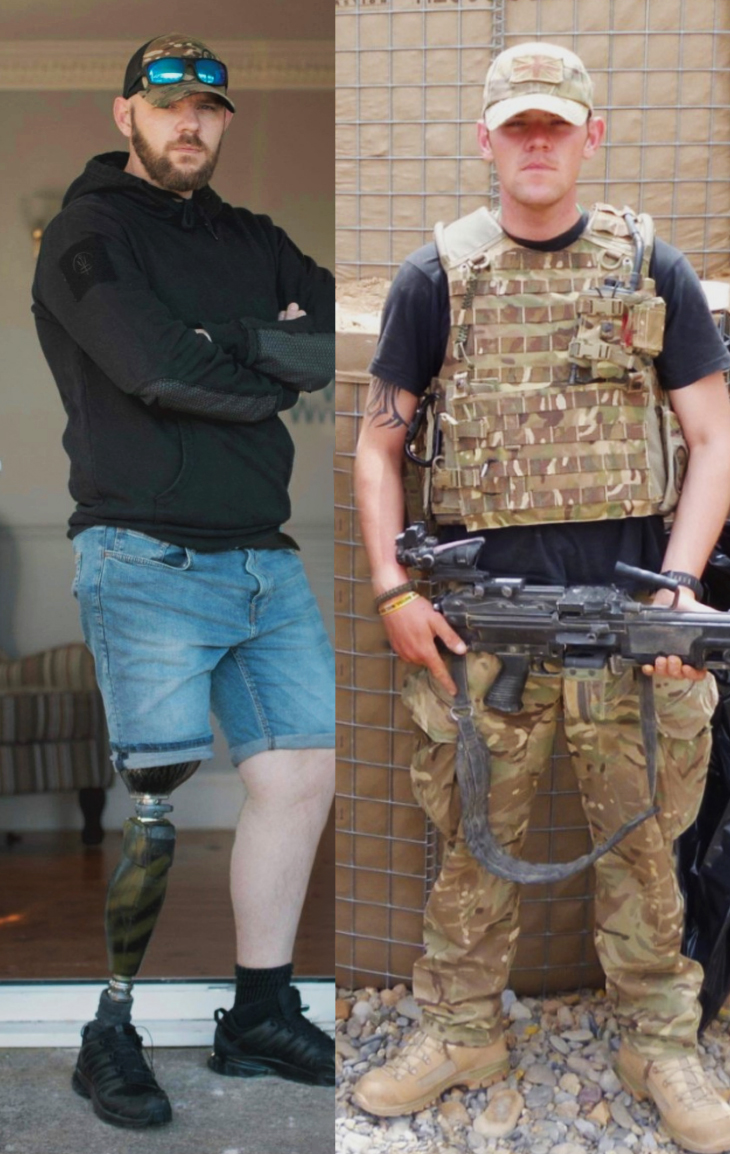
“I wouldn’t change anything that happened to me. It’s made me who I am, taught me to be a stronger person. I don’t have any regrets. You’d never learn anything if nothing ever went wrong.”
Steve Owen was serving with the Royal Welsh Fusiliers when, during a mission in Afghanistan, his vehicle was struck by an IED. Luckily, Steve escaped the explosion with his life and body intact, however the injuries he sustained led to significant, prolonged issues with his right leg. After years of frequent pain and numerous health complications, Steve asked his surgeon to amputate.
He recently spoke about this life-changing experience on Scotty’s Aspire podcast with 20-year-old Alex Thomas, who has been a member of Scotty’s Little Soldiers since 2015. Alex’s dad, Major David Michael Thomas, served in the REME (Royal Electrical and Mechanical Engineers) and died when Alex was just four years old. The Aspire podcast provides him and other young people with an opportunity to hear from inspiring individuals who have overcome challenges and achieved great things.
Over the course of their conversation, Steve talks to Alex about everything from joining the military in his teens to being injured on the battlefield, his life-changing amputation and even the time he met the Queen.
Joining the military at 19
“I'd always had an interest in the military,” says Steve. “Both my granddads served in the Second World War and I really used to enjoy listening to their stories and just spending time with them.” Steve would later join the Army himself. His son was only 6 months old at the time, but the prospect of serving his country spurred him forward. “When I joined, Iraq had kicked off and Afghan was starting to bubble, but that’s what I had envisioned. Everyone I trained with, when we signed up, we signed up to serve our country. We were excited, we were nervous, we were upset at leaving people behind, but one thing we all agreed on was that we were going to do our job. We were going to fight a war. We were 100% committed to it.”
Steve was posted to Afghanistan when he was 19 years old and served with the Royal Welsh Fusiliers for eight years. He is confident he would have served even longer had an incident in Afghanistan not changed his life forever:
In 2010, Steve’s vehicle, a Jackal, was struck by an improvised explosive device.
Being struck by an IED
Despite surviving the explosion, Steve sustained severe damage to his right leg and experienced several health complications. Nonetheless, he was determined to continue serving in the Army.
“I got called in to see my Platoon Commander. He told me they were deploying again in 18 months and asked if I wanted to go with them and if I would be well enough. I spoke to my family and we decided I was going. I felt like I was in my childhood again, fighting to get fit so that I could join the Army. Those 18 months were some of the hardest of my life. It was gruelling.”
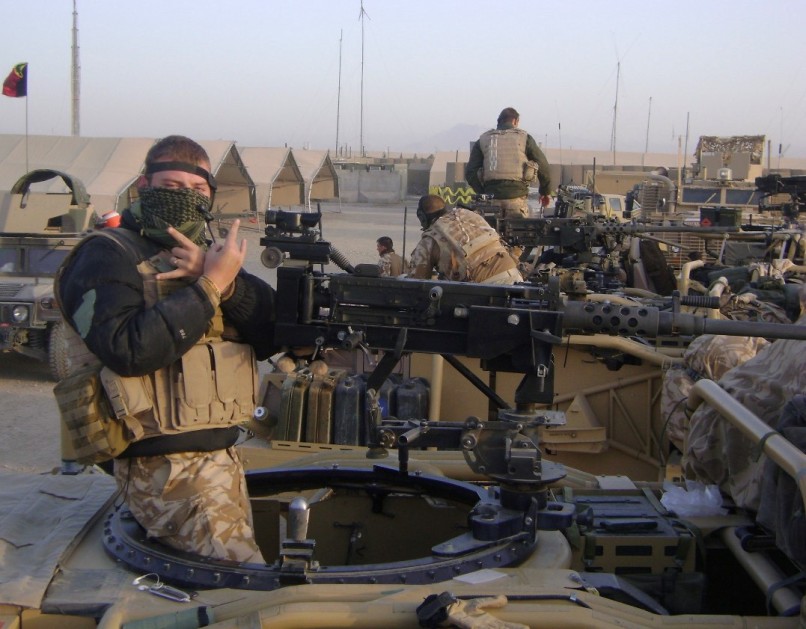
Meeting the Queen
Whilst in recovery, Steve was informed that he and his unit were going to be presented with a medal from Her Majesty The Queen.
“After the deployment where I was injured, we were told that we were going to be presented with a medal from the Queen. Happy days. I’d had a couple more surgeries and was only just out of hospital, so they weren’t sure if I’d be able to attend, but I basically told them I was going to be there whether they let me or not. You fight for Queen and country, and then you’re meeting her – it was a surreal experience. You expect her to speak to you like she addresses the public during the Queen's speech, but she actually comes up and starts talking to you like a nan! I’m really glad I got to do that. It was a happy ending to a bad experience.”
Choosing to have his leg amputated
Steve was redeployed 18 months later, but despite training hard, his leg was still causing significant issues and severe pain. He was eventually discharged from the military due to health complications and went through further physical rehabilitation. He became a Close Protection Officer until, in 2016, the pain in his leg grew suddenly worse.
“I remember sitting at home with my feet up on the coffee table, just chilling out, when I had this intense pain fly through my body. I thought I had a blood clot which had travelled to my lungs because I couldn't breathe properly. I went to hospital, had a couple more operations on my leg and I was basically told that two nerves were touching each other – I was never going to get full function back.”
This led to Steve making a decision that would change him forever.
“I went back to my surgeon and told him I want the leg off, and he agreed it was the right decision. That was a new start for the rest of my life.”
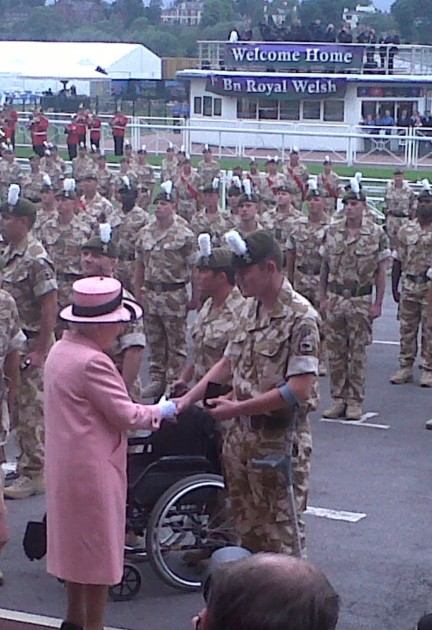
Walking a marathon four months after losing his leg
Four months after having his leg amputated, Steve undertook a 26-mile sponsored walk to see how far he could push himself on the new limb. He had only been physically capable of walking for three weeks at the time, and had not planned to finish the marathon distance, but once at the halfway point he was determined to see it through to the end.
“I was in absolute agony, but by this point I couldn't pull my prosthetic off because, if I did, my leg would be too swollen to get it back in. You’ve got to remember, your stump isn't like your feet, there's no hard skin there - it’s totally soft. I got to mile 20 and by this point I'm leaning against the hedge, I felt like I couldn’t take another step. My wife came up and told me to get on the minibus, but I knew if I got on the minibus, that was it. I decided I was going to take one more step, and if I could manage that step, I was going to take a second step. I took the first step and it nearly floored me, then I took the second step and that one was worse, but by that point I’d done two steps, so I thought ‘well, I’ve got to do it now...’ By the end my leg was leaking hydraulic fluid everywhere.”
457 laps in memory of 457 soldiers
In 2021, Steve completed another sponsored walk of 457 laps of a sports track, to commemorate the 457 British Service Personnel who died while serving in Afghanistan between 2001 and 2021.
“When the Afghan withdrawal happened, I heard some people saying everyone out there died for nothing, which I spoke out against publicly. How can people say it was for nothing when I know first-hand that even the smallest things we did made a difference. Everyone who served and died during that time didn’t die in vain – because of them Afghanistan went 20 years without being under the control of the Taliban.”
The challenge took 48 hours and Steve walked a total of 113 miles. He did not sleep throughout the whole two days and raised a total of £2,432 for Scotty’s Little Soldiers, as well as funds for Woody’s Lodge.
Woody’s Lodge is a meeting place and signposting service for those who have served in the Armed Forces or Emergency Services. Since having his leg amputated, Steve now works as their Project Manager, using his experience to help other ex-military and service personnel get the assistance they need.
“We get one life,” he says. “I’ve seen a lot of sacrifice. I’ve experienced a lot of things. Knowledge is power. Knowledge is only good if you give back.”
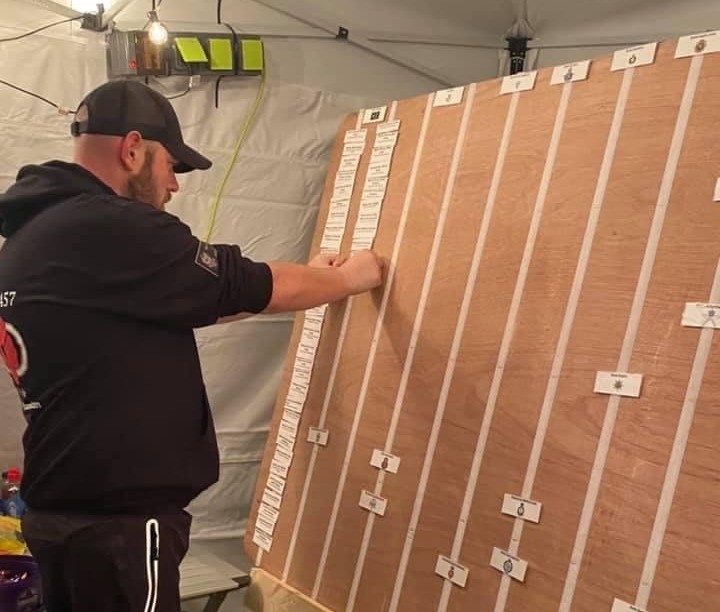
Why choose Scotty’s?
The sacrifice Steve has seen is what fuels his desire to support Scotty’s Little Soldiers, whose members have all experienced the death of a parent that served in the British Armed Forces.
“It's inspirational. Dealing with bereaved adults is difficult enough, but when you look at children it’s a completely different ball game. They’ve potentially lost their role model and someone that means more than life to them, but Scotty's are there to look after them. There are not many people or organisations who can do that, especially from a military perspective. It's hard enough when parents are deployed, so when you lose them for good it's devastating. Having an organisation that can help guide them through that loss is something that blows my mind.”
Overcoming every challenge
Despite everything Steve has suffered, he wouldn’t change a moment of it, as he believes it’s overcoming these challenges that have made him the man he is today.
“Stay strong, be resilient and work the problem. If you do that, things will always get better in the end. No matter how difficult a problem is, there's always solution. Sometimes that might mean reaching out and asking for help, sometimes it might mean finding your own answer. Just be true to yourself, because if you’re not being yourself no one can help you and you can’t help yourself, either. Be your own person and keep going.”
For many people, Steve is an inspiration. But who is Steve inspired by?
“My dad is my hero. I lost him in 2020, but he’d been ill for five years. From who he was to the respect he held with the local community and the way he treated his friends and family. He served as ambulanceman for 30 years and taught me a lot. He saved my life more times that he would ever know. My youngest son is another hero of mine,” Steve continues. “He’s disabled – he has a rare genetic disease that only 500 people in the world have, and for his specific variant there’s only two including him. He has seizures every day, but he overcomes them with this unstoppable drive and willingness to carry on. Despite all the stuff he has to deal with, he’s always smiling and wakes up happy every day. To me, that’s hero material right there.”
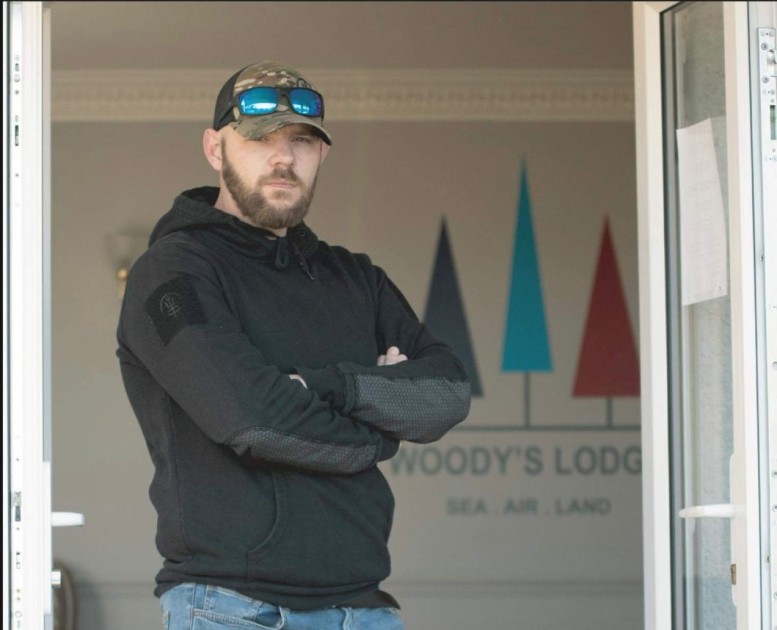
For the full interview, check out Scotty’s Aspire Podcast – available on all streaming platforms.
Scotty’s Little Soldiers is a charity dedicated to supporting children and young people (0 to 25 years) who have experienced the death of a parent who served in the British Armed Forces.
Inspired by the experience of Army widow Nikki Scott, following the death of her husband Corporal Lee Scott in Afghanistan in 2009, the charity, which was set up in 2010, provides support and guidance to hundreds of bereaved military children and young people throughout their childhood.
Scotty’s provides its members with access to bereavement support, outstanding development opportunities and the chance to smile again.


